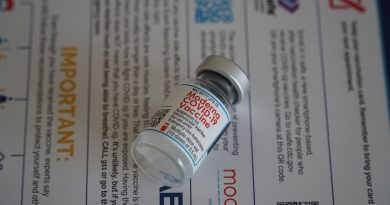Cold chain supply challenges for Pfizer and BioNTech’s COVID-19 vaccine
Governments around the world are scrambling to prepare for the rollout of the Pfizer and BioNTech COVID-19 vaccine, with many having already reached supply agreements with the companies to be first in line to receive it, once the vaccine is approved by the regulatory bodies.
The Pfizer and BioNTech vaccine must be stored at -70C (-94F)
According to interim trial data, which was recently announced by Pfizer and BioNTech, the mRNA-based COVID-19 vaccine candidate was more than 90% effective and had no serious side-effects. But the potential vaccine which is still evaluated in late-stage clinical trials must be stored at -70C (-94F).
Although the success of the multinational human clinical trial has raised hopes of a return to normal life, the major logistical challenge is hard to overlook. The logistical constraints of storing and distributing the potential COVID-19 vaccine to populations across the globe, at such a low temperature, could present, is set to be a difficult hurdle to overcome.
Pharmaceutical industry experts say it will be a “Herculean effort” requiring several new technologies to work in flawless synchrony to safely deliver every dose of the drug.
Pfizer is working on establishing a massive new cold-storage supply chain to handle the delicate dance of transporting limited doses of its COVID-19 vaccine from manufacturer to any point of use within two days.
As COVID-19 cases are surging across the U.S, Pfizer’s CEO Albert Bourla said:
“With 1,000 people dying every day in the U.S., there’s no time to lose.”
In the United States, the Kalamazoo Michigan-based Pfizer plant, the largest manufacturing site in the pharma giant’s network, currently has more than 300 freezers. Pfizer is working on boosting capacity further and plans to create an equally-sized “freezer farm” in Wisconsin. The Michigan plant can hold 100 million doses, and executives believe that is sufficient to hold the necessary doses for shipment, as an extremely fast turnaround is to be expected.
Pfizer’s Biopharma Global Supply Division Vice President, Tanya Alcorn said:
“We don’t expect to be sitting on doses.”
FedEx and UPS to distribute dry ice boxes holding up 5,000 doses each for 10 days at -70C
Pfizer has opted to deliver its COVID-19 vaccines to the health systems and other priority recipients using the well-known shipping companies FedEx and UPS. The shipping containers use dry ice, which can be replaced, to maintain the ultra-cold temperature of -70 degrees Celsius for up to 15 days. Pfizer has developed a suitcase-sized box that uses dry ice to keep between 1,000 and 5,000 doses for 10 days at minus 70 degrees Celsius.
Each package will be fitted with a GPS-tracked thermal sensor to monitor location and temperature and will “proactively” prevent “deviations”, such as accidents or theft, the company revealed for the Wall Street Journal. Pfizer is also planning to carry out fake shipments in dummy trucks in a bid to confuse any potential thieves.
Upon receiving positive data and availability of the necessary safety and manufacturing data, and based on current projections, Pfizer and BioNTech expect to produce globally up to 50 million vaccine doses in 2020 and up to 1.3 billion doses in 2021.
Recommended Companies
Ad
More headlines







